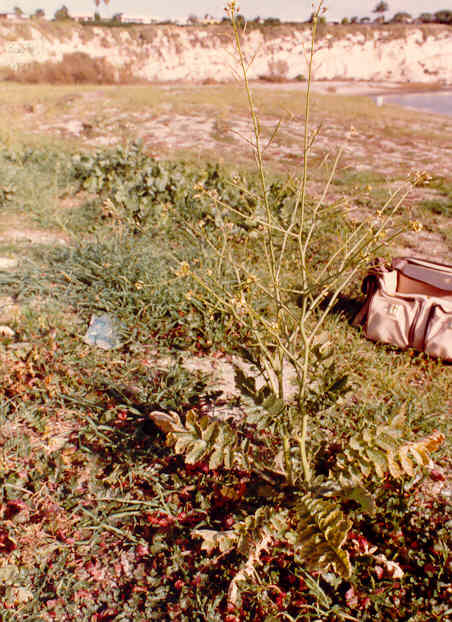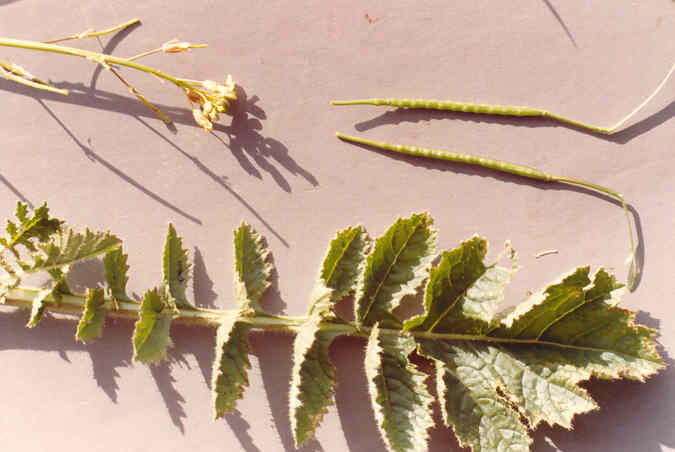
 |
Brassica tournefortii GouanBrassicaceae (Mustard Family)North AfricaWild Turnip |
January Photo
Plant Characteristics:
Annual, 1-6 dm. tall, branched at base, +/-hirsute below;
basal leaves lyrate-pinnatifid, short petioled, the upper reduced,
sessile, oblong or linear; fls.
crowded at anthesis; pedicels 3-10 mm. long, ascending; sepals 3mm. long; petals
pale yellow, 5-7 mm. long; siliques 3.5-6.5 cm. long ascending, the beak 1-2 cm.
long; seeds about 1 mm. thick, dark reddish brown; their surface is pitted, the
pits being thick walled with concave sides.
Habitat:
Roadsides and fields, Imperial Co. to Riverside Co. and w. San Bernardino
Co. Below 800 m.
Jan.-June.
Name: Brassica, the Latin for cabbage. (Munz, Flora So. Calif. 276). Tournefortii,
in honor of Joseph Pitton de Tournefort,
1656-1708, professor of botany, Paris, France.
(Hortus Third).
General:
Uncommon in the sense that it is found in only on Northstar Beach and
Shellmaker Island, however, it is common both of those places.
Photographed on North Star Beach. (my
comments). When
wild turnip matures its heavy crop of seeds and becomes dry, it is easily
snapped from its long deep-seated tap root and moves with the wind as a
tumbleweed. It appears that natural
spread by the wind in the main method of distribution, though unclean seed, hay
and chaff may carry the seed from infested area to clean lands.
(Robbins et al. 216).
Brassica species have been known to cause hay fever and asthma.
(Fuller 379).
Text Ref:
Hickman, Ed. 406; Munz, Flora So. Calif. 278; Roberts 15.
Photo Ref:
Jan 2 84 # 7,8.
Identity: by R. De Ruff, confirmed by F. Roberts.
Computer Ref:
Plant Data 5.
Have plant specimen.
Last edit 10/23/02.
 |